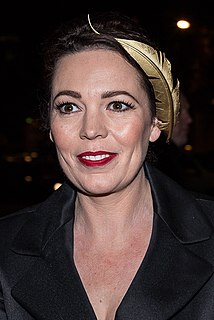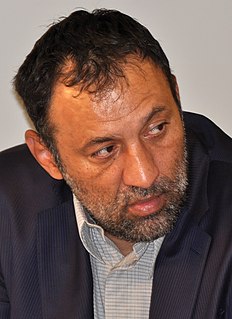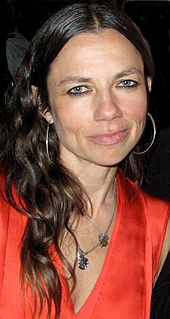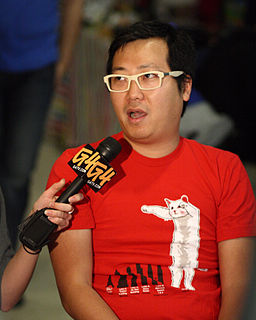A Quote by Andrew Haigh
I don't want a performance to give me everything. You can look at Charlotte Rampling in '45 Years,' and you don't really know what she's thinking, but you know something interesting is happening.
Related Quotes
I'm going with Charlotte Rampling. In 45 Years [movie], you start out feeling so bad for her, and then it kind of shifts. I don't know how long you have to act to be able to say everything when you say nothing. The acting feels so real. It's not a fluke that a movie that probably no one's heard of, an actress performance comes out of it.
I came here and actually fell in love with Charlotte and the Hornets. That's exactly what happened to me. I found a new way of motivation. Charlotte basically extended my career for the next seven years. I was thinking of retiring. I was 30 and played seven more years after that, just because basketball felt different here in Charlotte.
Starting in my 20s, I couldn't wait to look like Anna Magnani or Isabelle Huppert, all these great European actresses - Charlotte Rampling - the cheekbones and the heavy lidded eyes and the dark circles under the eyes, you know. So around 42/44, I started getting a little character on my face, and I was so glad.
I really just enjoy listening to talk [to John Hurt and Charlotte Rampling]... not even about acting or anything. It's interesting because I felt really connected to all these people very easily. They're all very open emotionally, like we're in the scene together, so you never feel like anyone's acting.
Sometimes the work can get in the way and you give a less-good performance, and sometimes it doesn't and you can really get to the heart of something. And all the other stuff is just interesting and adds another layer to your performance. It helps you find the reality. Because you're not just playing yourself, you know? That would be kind of boring.
I don't spend a lot of time online. My mother's really good at picking out if she sees a really great review, and she'll forward it to me. She's like my little Internet filter. It's always nice to see something going up; if I want to find something on Nathan Fillion, I do know where to look, but I've got a nice little delivery system in my mom.
My daughter [Ariana], she's a sweet, lovely girl, but she doesn't have the drive or the belief in herself. As it says in the film, I get touched up thinking about it, no one can give you a career. You have to have that inner drive. She wants it, but she doesn't know how to go for it, she's too shy. To see her perform and come on stage and feel comfortable, you know, she has talent - that was very touching, very moving, for me. She has a really beautiful sound and voice. She's a young girl still, 26, and innocent. She was kind of sheltered.
So what is the difference between "power thinking" and "positive" thinking? The distinction is slight but profound. To me, people use positive thinking to pretend that everything is rosy, when they really believe that it's not. With power thinking, we understand that everything is neutral, that nothing has meaning except for the meaning we give it, and that we are going to make up a story and give something it's meaning.
Jessica Biel is a really interesting case. She actually called us after the table read and said, "You guys should go meaner." She pitched us, and said, "Look, I know there are a lot of things to make fun of me about. I don't want people to think you're pulling punches. Please, dive in." We asked, "Could we tell a joke about your friend and mentor Stephen Collins?" And she said, "Well maybe not so much in that area. As long as the jokes were about me, I'm game for everything."





































